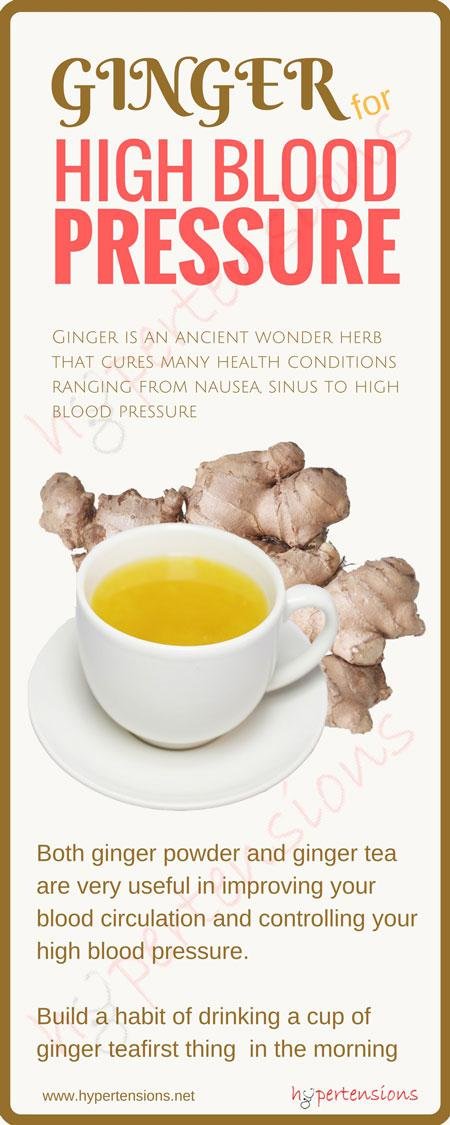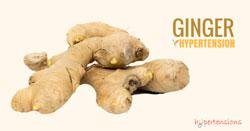Feeling the strain of a busy lifestyle with unhealthy eating, limited exercise, and chronic stress? You might be considering natural remedies like ginger tea to manage your high blood pressure.
Ginger tea has been used for centuries in traditional medicine for various ailments, and its potential benefits for heart health are gaining more attention. Here's a breakdown of what ginger offers and how to incorporate it safely into your routine for managing high blood pressure.
Ginger: A Natural Approach to Blood Pressure Control (Early Stages)
For some people, the idea of lifelong medication for hypertension can be daunting. Ginger tea may be a natural alternative, particularly in the early stages of high blood pressure. Widely available and easy to prepare, ginger boasts to potentially improve blood circulation and overall heart health.
Studies suggest that ginger may help lower blood pressure by acting as a natural blood thinner and relaxing blood vessels. However, it's important to note that more research is needed to fully understand the exact mechanisms by which ginger tea may lower blood pressure.

Scientific Backing for Ginger's Blood-Thinning Properties
One promising area of research suggests that ginger may act as a natural blood thinner, improving circulation and potentially lowering blood pressure through complex mechanisms(1). Ginger appears to work by inhibiting the activity of certain enzymes and hormones involved in blood clotting.
This can help to improve blood flow throughout the body, potentially reducing strain on the heart and lowering blood pressure. However, it's important to remember that ginger's blood-thinning effects can be significant.
If you're already taking blood thinners, consult your doctor before consuming ginger tea regularly to avoid any potential interactions that could increase your risk of bleeding (Does Ginger Tea Interact with Blood Pressure Medication?).
Beyond Blood Pressure: Ginger's Versatility
Ginger's popularity extends far beyond blood pressure control. Doctors often recommend it for nausea relief caused by motion sickness, pregnancy, or even certain medications. It's also known to help manage pain associated with osteoarthritis.
Ginger is a natural anti-inflammatory and may also help with symptoms like muscle aches and headaches. Adding ginger to your diet is a safe and easy way to experience its various health benefits.
Important Cautions Before You Brew
While ginger tea appears to be safe for most people in moderate amounts, there are a few important considerations before incorporating it into your routine for high blood pressure:
- Blood Thinning Medications: If you're already taking blood thinners, consult your doctor before consuming ginger regularly. Both ginger and blood thinners can affect clotting, potentially increasing the risk of bleeding. Can Ginger Tea Cause Low Blood Pressure? It's important to be aware of this potential interaction and discuss it with your doctor to determine if ginger tea is safe for you.
- Diabetes Medications: Ginger may interact with diabetes medications by lowering blood sugar levels. If you have diabetes and are considering drinking ginger tea regularly, monitor your blood sugar levels closely and talk to your doctor about potential interactions with your diabetes medication.
- Existing Blood Pressure Medication: If you're already on medication for high blood pressure, monitor your blood pressure closely while incorporating ginger tea. Their combined effects could lead to excessively low blood pressure. Discuss this with your doctor to potentially adjust your medication dosage . It's important to find the right balance between your medication and any chosen natural remedies for managing blood pressure.
Lowering Blood Pressure Naturally: A Multi-Pronged Approach
Unleash a multi-pronged attack on high blood pressure!
Combine ginger tea with a heart-healthy lifestyle: move your body most days, ditch processed foods for fresh options, manage weight gradually, fuel your body with fruits, veggies, and whole grains, and find healthy ways to de-stress.
This holistic approach can significantly impact your blood pressure for the long term.
Ginger Tea for Early-Stage Hypertension: A Recipe for Success
For those with early-stage high blood pressure, incorporating ginger tea alongside dietary changes and exercise can be a powerful strategy. Consider this approach to manage your blood pressure with a combination of natural and lifestyle changes:
- 30 Minutes of Exercise: Start with a manageable exercise routine, such as a 30-minute walk most days of the week. Gradually increase intensity and duration as you become more fit.
- Reduced Salt Intake: Pay attention to food labels and limit processed foods that are often high in sodium. Cook more meals at home to control the amount of salt added.
- Daily Ginger Tea: Enjoy a cup of ginger tea in the morning and evening. Here's how to make ginger tea for blood pressure.
Preparing Your Ginger Tea: Two Easy Methods
There are two main ways to prepare ginger tea, depending on your preference:
1. Dried Ginger Powder Tea (Quick and Easy):
- Add half a teaspoon of dried ginger powder to a cup of hot water.
- Let it simmer on low heat for 5-10 minutes. This allows the ginger to release its flavor and beneficial compounds into the water.
- Strain and enjoy warm. You can add honey or lemon juice for extra flavor.
2. Fresh Ginger Root Tea (More Flavorful):
- Peel and grate 1 inch of fresh ginger root. How Much Ginger Tea to Drink for High Blood Pressure? While there is no recommended daily dosage, most studies have used 2-4 grams of ginger per day. This can be adjusted based on your preference and taste.
- Add the grated ginger to a pot of boiling water.
- Let it simmer for 5-10 minutes.
- Strain and enjoy warm. You can add honey or lemon juice for extra flavor.
Monitoring Your Progress
Remember, lowering blood pressure takes time and consistency. Regularly check your blood pressure at home to track your progress with ginger tea. It may take weeks or even months before you see noticeable results. If you're not seeing any improvement or your blood pressure goes too low, consult your doctor to discuss other treatment options.
Bottom Line
Ginger tea presents a promising natural approach to managing early-stage high blood pressure, especially when combined with a healthy diet and exercise routine. However, consult your doctor before incorporating ginger tea into your regimen, especially if you're already taking medications.
By working with your doctor and adopting a holistic approach, you can take charge of your blood pressure and promote long-term heart health. Ginger tea is a safe and natural way to support your overall well-being.

